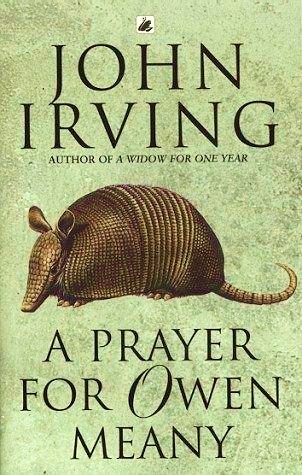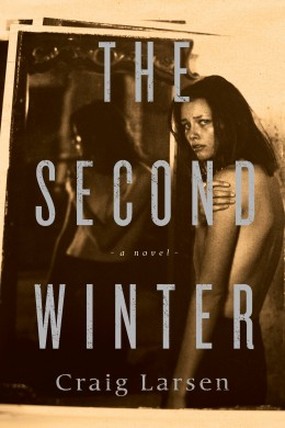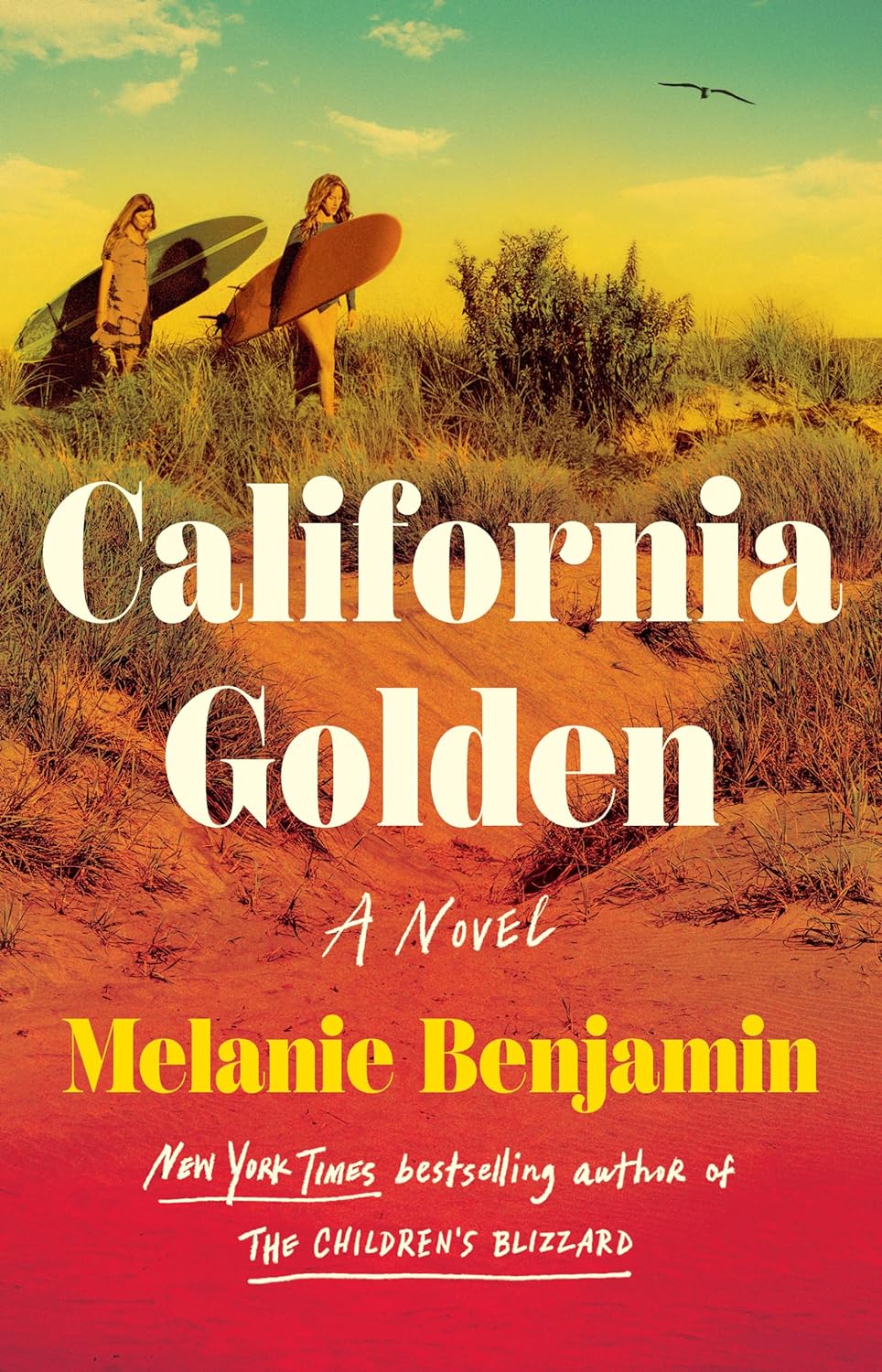|
Rating: 4/5 Stars
Dive into the radiant world of California Golden by Melanie Benjamin, where the sun-soaked landscapes of 1960s Southern California set the stage for a mesmerizing exploration of family dynamics, desperation, and second chances. At the heart of the narrative is Carol Donnelly, a legendary female surfer challenging the norms of a male-dominated sport, and her daughters Mindy and Ginger. Fueled by their mother’s apparent indifference, these young sisters adopt Carol’s unwavering devotion to the ocean, normalizing PB&J sandwiches for dinner and skipping school to catch waves. While Mindy becomes a surfing sensation, basking in minor celebrity and winning competitions, Ginger finds herself entangled with the self-proclaimed ‘Surf God’ in a world of drug deals and beachside shack living. Drawing inspiration from a real-life mother-daughter surfing trio, Benjamin weaves a tale that, though fictional, swells with authenticity. The characters’ actions are often frustrating, but they undeniably contribute to the novel’s overall impact. Despite not always being likable, the characters come alive and shine the brightest when they’re hanging ten. What truly dazzles in this book is the key throughline: the generational echoes within a family when a woman is torn away from her true calling and thrust into a role she never desired. Through the compelling narratives of Mindy and Ginger, Benjamin explores how parental neglect leaves an indelible mark on a child’s beliefs and behaviors. Carol resists the conventional trappings of motherhood, often seeking solace by the seaside. In Carol’s absence, Mindy evolves into Ginger’s caretaker, fostering a fierce sense of self-preservation. Ginger, on the flip side, desperately seeks someone to look after her. These reverberations from their shared history resonate in their subsequent romantic relationships, adding layers of complexity to the emotional rollercoaster of the narrative.
0 Comments
 Written by Lauryn Smith My interest in John Irving’s writing began after I read his award-winning “The World According to Garp” in high school. I promise to give a review of “Garp” as soon as I replace my lost copy, which met its fate in a puddle of water. (Trust me, though, you must read it!) For now, let’s talk about “A Prayer for Owen Meany,” Irving’s all-time best-selling novel. The fictional story is deep, poignant, complexly germane and truly captivating. The titular character, Owen, is an intelligent, small-statured, shrill-voiced, 11-year-old son of a quarryman. He grows up in Gravesend, New Hampshire, with his best buddy John Wheelwright, whose family comes from old money. John narrates the twists and turns of their relationship, from the Little League baseball game during which Owen’s foul ball kills John’s mother to Owen’s death, a divinely crafted occurrence that Owen adamantly believes he has foreseen. This novel is one of predestined heroism and a boy determined to curate his life experiences in preparation for his final act. (The vagueness concerning Owen’s fate is necessary—spoilers! I can say, however, that in his role as the Ghost of Christmas Future for a production of “A Christmas Carol,” he inexplicably sees his name and date of death on Scrooge’s gravestone, which fortifies his ideas about his purpose and his link with God.) The majority of the story takes place throughout the 1950s and 1960s, so readers get to follow Owen and John as they transition from days composed of TV viewing and rounds of armadillo hide-and-seek (read the book to see what I mean – it is a whole thing) to days composed of collegiate activities and wartime rhetoric. Several themes are unmissable. Perhaps the most notable motif that Irving explores if that of friendship. (Example “aww” moments include 1) the trustful sharing of treasured baseball cards between Owen and John and 2) Owen’s voluntarily repeating grade nine when he learns that John was held back, all so that they might attend Gravesend Academy together.) Also prominent are the concepts of religion and faith as well as the corresponding concept of doubt. In addition, Irving cleverly integrates insights into the stateside turmoil associated with the Vietnam War. Though these topics hold the story together, they are arguably tangential to a larger theme, that is, the loss of one’s childhood and the beautiful tragedy of maturing.  Written by Lauryn Smith I thought I knew what I was getting into when I began reading Craig Larsen’s “The Second Winter,” a fictitious story that takes place during World War II. I was confident that the book would be interesting. (Anyone who knows me knows that historical fiction is right up my alley.) I feared, though, that the book would be only marginally original, that it would not stand out among the many others also set during wartime. It was not long before I realized how wrong my latter expectation was. Larsen expertly differentiates “The Second Winter” by narrowing his scope, homing in on often overlooked subtleties inherent to this anecdote-ridden part of history. With a downtrodden family at the heart of the novel, Larsen emphasizes strained familial relationships and details the twists and turns of fate that are generated by various interpersonal interactions. The war merely acts as a backdrop, a driving force. This unexpected approach makes for a deep, fulfilling read as the plot is enhanced by the setting rather than carried by it. (A special thanks to the author for providing me a copy of the book!) Dark and dismal, “The Second Winter” takes place in 1941 in German-occupied Denmark. Fredrik Gregersen, a large, callous, imposing man who oversees a small farm in Jutland, partakes in a prohibited side business, namely helping Jewish fugitives cross the border into Sweden. One night, he is presented with an opportunity to steal a satchel of valuable jewelry from a family of escapees, which he does without a second thought. Contained in that satchel is an expensive necklace, which ends up being a key element of the story. The plot thickens with each transfer of ownership of the necklace. |

Enjoying my book reviews? If you’ve found them helpful or simply love diving into a good book, consider supporting my caffeine-fueled reading sessions! Your contribution helps keep the reviews coming and ensures I stay wide awake for those late-night reading marathons. Cheers to a shared love for literature! ☕️
Categories
All
|

